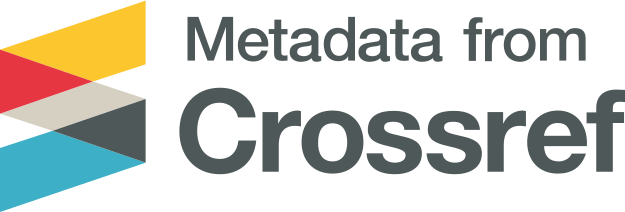Bagaimana Mengelola Keuangan Sekolah yang Efektif dan Efisien?
DOI:
https://doi.org/10.35838/jrap.2023.010.02.17Keywords:
Efficiency, Effectiveness, Financial ManagementAbstract
The BOS Fund is a government program that basically provides funding for non-personnel operating costs for basic education units as implementers of the compulsory education program. There is a new change, namely the Regulation of the Minister of Finance of the Republic of Indonesia number 119/PMK.07/2021 concerning the management of non-physical special allocation funds, where the distribution which was originally through RKUD is now directly to the school's account. The purpose of this study was to find out how effective and efficient the management of BOS funds was as well as the supporting and inhibiting factors and their efforts at UPT SDN Ngadri , Binangun District. The method used in this research is descriptive quantitative. The research data are primary and secondary data. The data collection techniques of this research are observation, interviews and documentation. The data analysis technique in this study used the Mardiasmo theory, namely the ratio of effectiveness and efficiency ratio to measure the effectiveness and efficiency of managing BOS funds. The results of this study indicate that the management of BOS funds has been effective and efficient based on predetermined value classifications.
Downloads
References
Anggraeni, D., Ghofur, R. A., & Hilal, S. (2023). Efektivitas Program Kartu Prakerja dalam Membangun Sumber Daya Manusia Pasca Pandemi Covid-19. Jurnal Informatika Ekonomi Bisnis, 5(3), 890-893. https://doi.org/10.37034/infeb.v5i3.611
Anggreni, M. (2021). Pengaruh Budaya Organisasi Terhadap Mutu Pendidikan. Jurnal PTK dan Pendidikan, 6(2), 49-56. https://doi.org/10.18592/ptk.v6i2.4101
Anggreni, N. O., & Subanda, I. N. (2020). Implementasi Kebijakan Penyaluran Hibah dan Bantuan Sosial Kemasyarakatan di Kabupaten Buleleng. Jurnal Ilmiah MEA (Manajemen, Ekonomi, dan Akuntansi), 4(2), 1-18.
Effendi, S. (2021). Pengaruh Efektifitas Dan Kontribusi Terhadap Pendapatan Asli Daerah Kota Batam. Jurnal Akuntansi Barelang, 5(2), 67-73.
Jusman, & Iskak, M. (2023). Efektifitas Model Pembelajaran Self-Organised Learning Environtment (Sole) TerhadapHasilBelajar Siswa Pada Mata Pelajaran Desain Komunikasi VisualKelasX SMKNegeri 2 BoneFaidah Yusuf. Jurnal Ilmiah Wahana Pendidikan, 9(19), 912-919. https://doi.org/10.5281/zenodo.10035537
Mardiasmo, M. (2018a). Akuntansi Sektor Publik. Andi.
Mardiasmo, M. (2018b). Perpajakan Edisi Terbaru. Penerbit Andi.
Ningrum, J. W., Khairunnisa, A. H., & Huda, N. (2020). Pengaruh Kemiskinan, Tingkat Pengangguran, Pertumbuhan Ekonomi dan Pengeluaran Pemerintah Terhadap Indeks Pembangunan Manusia (IPM) di Indonesia Tahun 2014-2018 dalam Perspektif Islam. Jurnal Ilmiah Ekonomi Islam, 6(2). https://doi.org/10.29040/jiei.v6i2.1034
Pandi, A. (2022). Efektivitas Pelayanan Tenaga Administrasi Di Smaabdussalam Kabupaten Kubu Raya. Jurnal Pendidikan Dasar Dan Sosial Humanior, 1(4), 1541-1556. https://doi.org/10.53625/jpdsh.v1i8.2351
Santriati, A. T. (2020). Perlindungan Hak Pendidikan Anak Terlantar Menurut Undang Undang Perlindungan Anak. 1(1), 1-13. https://doi.org/10.35888/elwahdah.v1i1.4049
Sugiyono, & Lestari, P. (2021). Metode Penelitian Komunikasi. Alfabeta.
Sulistyan, R. B., Pradesa, H. A., & Kasim, K. T. (2017). Peran Mediasi Kepuasan dalam Pengaruh Kualitas Pelayanan dan Citra Institusi terhadap Retensi Mahasiswa (Studi Pada Mahasiswa Perguruan Tinggi di Lumajang). Jurnal Penelitian Ilmu Ekonomi WIGA, 7(2), 77-87. https://doi.org/10.30741/wiga.v7i2.337
Swadesi, U., Rusli, Z., & Tantoro, S. (2020). Implementasi Kebijakan Kota Layak Anak. Jurnal Ilmu Administrasi Negara, 16(1), 77-83. https://doi.org/10.46730/jiana.v18i2.7932
Undang-Undang Nomor 35 Tahun 2014 tentang Perubahan atas
Undang-Undang Nomor 23 Tahun 2003 tentang Perlindungan Anak, Undang-Undang Nomor 20 tahun 2003 tentang Sistem Pendidikan Nasional, LN No. 78, TLN 4301
Winaya, I. M. A., Wijaya, P. E. P., Sudiarta, I. N., & Sutika, I. M. (2022). Analisis Prisip-Prinsip Pengelolaan Dana Bantuan Oprasional Sekolah (BOS) Reguler dalam Program Merdeka Belajar. WIDYA ACCARYA: Jurnal Kajian Pendidikan FKIP Universitas Dwijendra, 13(2), 133-144.
Downloads
Published
Issue
Section
License
Authors who publish with this journal agree to the following terms:
- Authors retain copyright and grant the journal right of first publication with the work simultaneously licensed under a Creative Commons Attribution-ShareAlike 4.0 International License that allows others to share the work with an acknowledgement of the works authorship and initial publication in this journal.
- Authors are able to enter into separate, additional contractual arrangements for the non-exclusive distribution of the journals published version of the work (e.g., post it to an institutional repository or publish it in a book), with an acknowledgement of its initial publication in this journal.
- Authors are permitted and encouraged to post their work online (e.g., in institutional repositories or on their website) prior to and during the submission process, as it can lead to productive exchanges, as well as earlier and greater citation of published work (See The Effect of Open Access).














